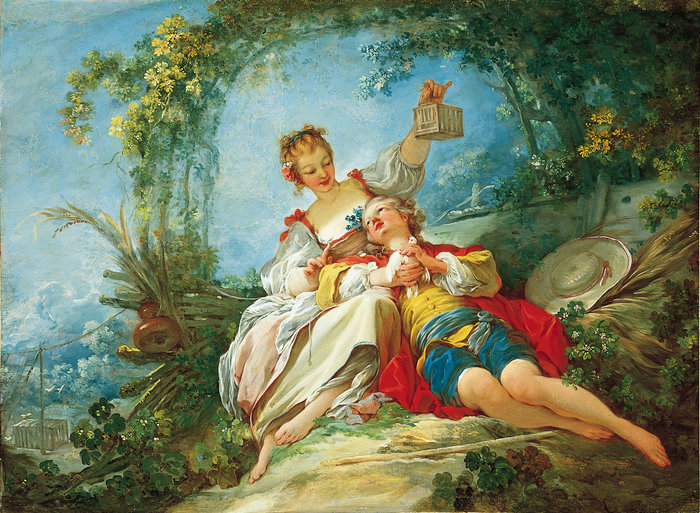Friday
To kick off the month of June, here’s a luminescent Richard Wilbur poem about a first love. It reminds me of my own early days with Julia, whom I met at Carleton College in the spring of 1972. The “first great gift” mentioned in the final line may be God’s creation of the Garden of Eden, and I remember associating my own love with that event.
Perhaps contributing to this association was the hymn that Cat Stevens had just made famous and that we would sing at our wedding the following June: “Morning has broken like the first morning/Blackbird has spoken like the first bird.” It all felt , to quote Lucille Clifton, “so very Eden.”
Whenever one mentions Eden, one looks for the fall, and hints of it show up in the poem. The line “more fatal fleshed than ever human grace” points to mortality, and the first line of the next stanza ends with the word “fall.” But instead of moving to a darker note, Wilbur finds special transcendence in the moment. Because they have fallen into each other’s company, their lives will flesh out in complex ways.
A pearskin’s fleck and trace are far more interesting than the pure light we associate with grace. I think of Gerard Manley Hopkins’s “Pied Beauty,” in which he sees God’s hand at work in “dappled things.” Wilbur’s poet still seems as much in love as he ever was. The “truth and delight” that were promised on that June morning have been realized, and that is the greatest gift of all.
June Light
By Richard Wilbur
Your voice, with clear location of June days,
Called me outside the window. You were there,
Light yet composed, as in the just soft stare
Of uncontested summer all things raise
Plainly their seeming into seamless air.
Then your love looked as simple and entire
As that picked pear you tossed me, and your face
As legible as pearskin’s fleck and trace,
Which promise always wine, by mottled fire
More fatal fleshed than ever human grace.
And your gay gift—Oh when I saw it fall
Into my hands, through all that naïve light,
It seemed as blessed with truth and new delight
As must have been the first great gift of all.


